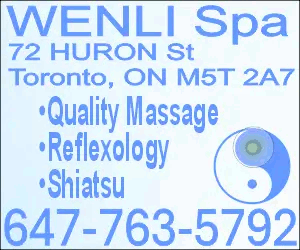Aldermen voted Monday to introduce an ordinance to license massage establishments, which some local massage therapists fear will perpetuate stereotypes of the massage industry.
The ordinance would require massage establishments to pay a $50 licensing fee and provide identification and state licenses for each worker at the business, banning those with prior offenses involving sexual misconduct, violent felony convictions or the use of dangerous drugs or weapons from receiving licenses. The ordinance also bars sexual acts in the workplace and requires that workers wear opaque clothing while on the establishment’s premises.
Although creating a massage licensing system and registry is supported among local massage therapists, the language in the bill purports an image that the massage industry is trying to distance itself from, said Sarah McLaughlin, a local massage therapist.
“I’m very pro-regulation, but not pro-regulation that automatically assumes that my industry is somehow sexual in nature,” McLaughlin said. “But the fact that in the licensing it says directly that we’re barred from committing sexual acts, well, that’s pretty offensive.”
This ordinance follows a failed proposed zoning ordinance in 2012 that would require massage establishments to follow the city’s special use approval process.
Evanston police Cmdr. Joseph Dugan said the ordinance is meant to help officers distinguish between legitimate and criminal establishments, and will give more credence to the licensed businesses. Running a police operation on a massage establishment often costs thousands of dollars, Dugan said, and this ordinance would help police make sure they’re pursuing the right cases.
“The intention of this ordinance isn’t to paint everyone with the same brush,” Dugan said. “It’s just necessary because it needs to be laid out that this is what we need to stop.”
McLaughlin said if the goal of this ordinance is to prevent sex trafficking in the industry, it would be more effective to work directly with people in the industry.
“If I was police chief … I’d want to sit down with local professionals and actually talk with them about what are the red flags for a safe spa versus an unsafe one in the environment,” McLaughlin said.
Ald. Delores Holmes (5th) said that the ordinance is not meant to target massage therapists, but just make sure that businesses are in line with already existing laws.
“It just makes sure that people are in compliance with the state licenses,” Holmes said.
The ordinance will be considered for action at the City Council’s April 11 meeting.
Email: [email protected]
Twitter: @robinlopsahl

Let's block ads! (Why?)
The ordinance would require massage establishments to pay a $50 licensing fee and provide identification and state licenses for each worker at the business, banning those with prior offenses involving sexual misconduct, violent felony convictions or the use of dangerous drugs or weapons from receiving licenses. The ordinance also bars sexual acts in the workplace and requires that workers wear opaque clothing while on the establishment’s premises.
Although creating a massage licensing system and registry is supported among local massage therapists, the language in the bill purports an image that the massage industry is trying to distance itself from, said Sarah McLaughlin, a local massage therapist.
“I’m very pro-regulation, but not pro-regulation that automatically assumes that my industry is somehow sexual in nature,” McLaughlin said. “But the fact that in the licensing it says directly that we’re barred from committing sexual acts, well, that’s pretty offensive.”
This ordinance follows a failed proposed zoning ordinance in 2012 that would require massage establishments to follow the city’s special use approval process.
Evanston police Cmdr. Joseph Dugan said the ordinance is meant to help officers distinguish between legitimate and criminal establishments, and will give more credence to the licensed businesses. Running a police operation on a massage establishment often costs thousands of dollars, Dugan said, and this ordinance would help police make sure they’re pursuing the right cases.
“The intention of this ordinance isn’t to paint everyone with the same brush,” Dugan said. “It’s just necessary because it needs to be laid out that this is what we need to stop.”
McLaughlin said if the goal of this ordinance is to prevent sex trafficking in the industry, it would be more effective to work directly with people in the industry.
“If I was police chief … I’d want to sit down with local professionals and actually talk with them about what are the red flags for a safe spa versus an unsafe one in the environment,” McLaughlin said.
Ald. Delores Holmes (5th) said that the ordinance is not meant to target massage therapists, but just make sure that businesses are in line with already existing laws.
“It just makes sure that people are in compliance with the state licenses,” Holmes said.
The ordinance will be considered for action at the City Council’s April 11 meeting.
Email: [email protected]
Twitter: @robinlopsahl

Let's block ads! (Why?)











































































































